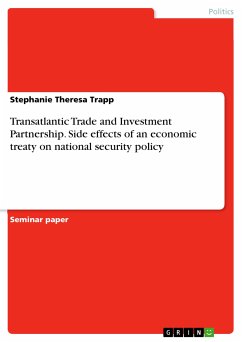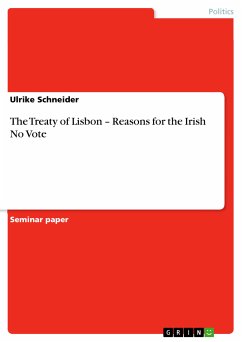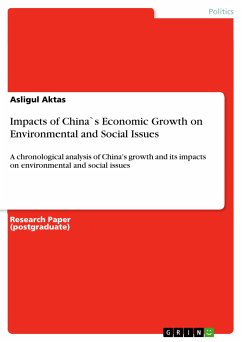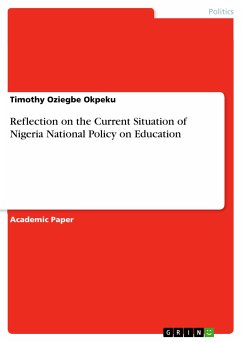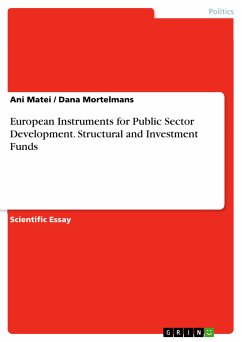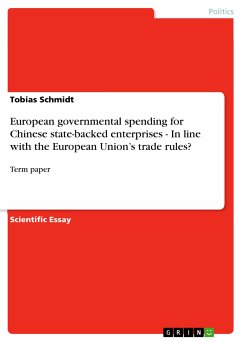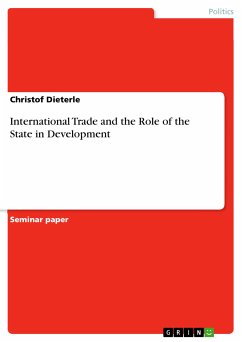Seminar paper from the year 2014 in the subject Politics - Region: USA, grade: 1,0, Norwich University (College of Liberal Arts), course: International Security Policy, language: English, abstract: The Transatlantic Trade and Investment Partnership (TTIP) which is intensely discussed in the media as well political and economic interest groups and political parties seems to have the potential to become “the largest bilateral trade and investment negotiation ever undertaken” between two major politico-economic blocks, namely the United States of America and the European Union. Its presumable effects will not only be visible on the economic level, but also profoundly affect judicial, political, social , and security issues. Due to the financial and Euro zone crises, the pact is about to be reshuffled, politico-economical powers have to be balanced anew and governments look for innovative and sustainable ways to reinvigorate their economies to position their industries and enterprises in the most competitive way on a global level. In this paper, the question of to what extent will potential effects of the Transatlantic Trade and Investment Partnership (TTIP) Program affect (1) U.S. and (2) European Security Policy attitudes will be answered and the ways to get to this answer will be explained. This paper does not intend to promote or reject the TTIP initiative in a biased way, but to factually show potential positive and negative effects it would have and to what extent it would affect the United States and the European Union.
Bitte wählen Sie Ihr Anliegen aus.
Rechnungen
Retourenschein anfordern
Bestellstatus
Storno

